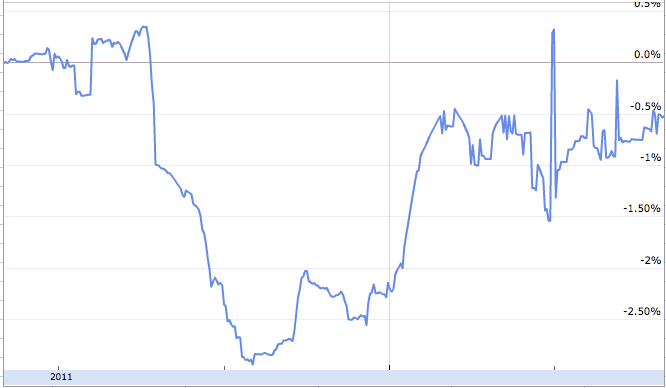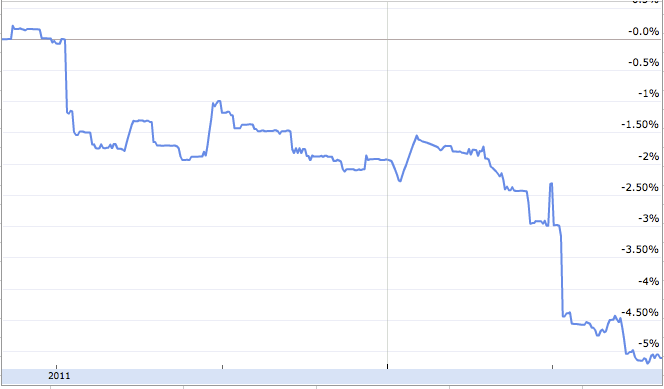One of our twitter followers tweeted us asking if we'd seen prices rise across our components database. We decided to find out.
Using June 1, 2011 as our baseline, we calculated average percent changes in prices published by major small volume distributors until June 1, 2012. We sampled roughly 200,000 parts -- this sample represents the full breadth of diversity in the components universe. Everything from an oscilloscope to a ceramic capacitor is treated on an equal footing in this analysis. The resultant trend line is certainly not without its interesting features, including a ~2.5% price drop around August 2011 accompanied by a subsequent increase in price in early 2012. Keep in mind though these percent differences are marginal, perhaps the most interesting feature of this graph is how remarkably constant prices seem to be.
This analysis has a natural bias towards component categories for which more components exist. This issue could be addressed by sampling evenly from categories. The narrower the category, the more likely a distinct trend will emerge. To illustrate, we ran the same analysis code over the known microcontrollers in our database which resulted in a very interesting discovery - prices have dropped by nearly 5% on microcontrollers over the last year. Sampling across categories introduces another bias -- which categories should be sampled and how much weight should be placed on each category? The 'basket of goods' which are interesting to someone working on power management circuits will be very different from that of someone working on logic, rendering an arbitrary choice very limited in scope. Rather than decide on this basket of goods ourselves, we'd love to hear more thoughts on this matter (or calls for other analysis requests).We'll be diving into more comprehensive plots in our newsletter

